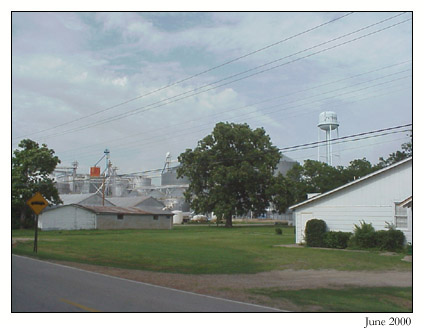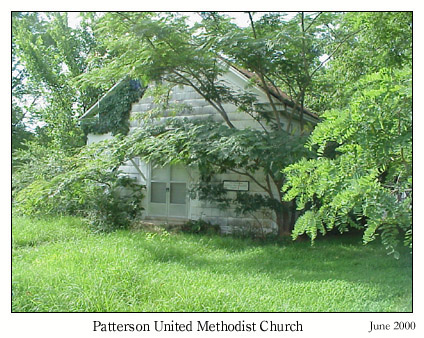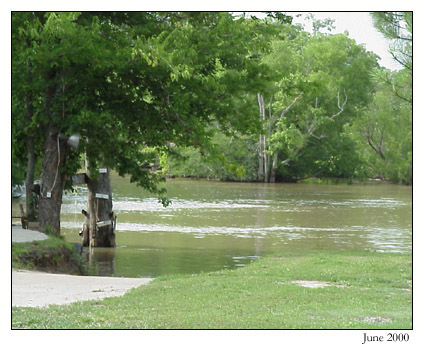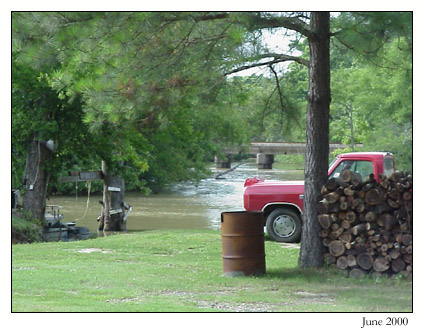|
One night in November of 1893, a passenger train on
the Iron Mountain Road made its regular stop at Oliphant, a small town in
Jackson County. The peaceful slumber of the passengers was suddenly disturbed
when eight horse were driven alongside the train, and as many masked men
entered the express car. A shot rang out, and Conductor McNally fell to the
floor. The express car was robbed, and then in desperado style the robbers
entered the passenger coaches. Women fainted, babies whimpered, and in
obedience, men "reached for the sky." The intruders robbed each passenger and
then headed for the hills. For a minute no sound was heard, passengers were
almost afraid to breathe. One woman who was wearing a watch and fob pinned to
her bosom had turned the watch inside her dress hoping they would pass her by.
but one had snatched it roughly. She was the first to cry out, breaking the
silence as horses' hoof were growing faint in the cold dark air... Sheriff
Patterson boarded the engine at Augusta, and by 3 o'clock had joined the posse
at Oliphant. They headed their horses in the direction the robbers had fled...
Just as the streaks of dawn reddened the sky, and long fingers of a wintry sun
came out to melt the frost, two men appeared over the hill. Sheriff Patterson
instructed his comrades, and as spokesman, he rode up to one of the men and
greeted him. "Have you seen our dogs?" Posing as a hunter he made conversation.
Two gold watch chains dangled from one stranger's vest and a diamond ring
sparkled in the early morning sun. Patterson gave the sign to his comrades and
said to the stranger, "That is a fine gun you have," and at the same time
handed him his gun, which is common courtesy between hunters. The stranger,
unaware of trickery, handed his gun to the sheriff, and a cry rang out "Hands
Up." Both men were well covered. The sheriff's gun was unloaded, and the man
had walked into a trap. Mr. Lippman, who kept the other man covered, said he
was the biggest man he ever saw, and with his hands up, "he looked like a
tree."
...In 1909, the Patterson family had moved to
Jelks, one mile from McCrory. Shortly after this move, the name of the town was
changed to Patterson, but many people still used the old name of Jelks.
On May 21, 1921, Patterson was killed in a gun
battle in the office of the railroad station at Patterson. The Commercial
Appeal story did not include the details of the tragedy.
According to the Home News, the McCrory
newspaper of the time, Patterson was shot by Ed Harris, a traveling salesman.
There had been an argument between the two men. Witnessing the affair were the
station agent, I. N. Faulkner, and J. W. Mullens. An inquest was held by a jury
empaneled by the acting coroner, R. A. Jones. A pistol was found on Patterson's
body, and Harris stated that he had fired in self defense.
Harris was arrested and held in the county jail. On
May 27, the newspaper reported that at a habeas corpus hearing he was released
on a $6,000 bond. At this hearing, Faulkner and Mullens testified that Harris
shot Patterson after the latter attempted to draw his revolver. Both witnesses
said that Harris used two revolvers in the attack. Other than the two
eye-witnesses, those who testified at the hearing were R. A. Jones, acting
coroner, J. D. Angus, J. L. Bronte, and the sheriff, W. N. Wilkes.
Within ten minutes after the court stated that
Harris' bond be fixed at $6,000, friends executed a bond for the defendant in
the amount of $40,000. Among those who signed the bond were J. H. Snapp, A J.
Marsh, J. H. Crossett, H. D. Angus, J. W. Mullens, W. O. Scales, G. W. Barber,
and others, all prominent Woodruff County citizens.
The newspaper stated "that the killing will be
investigated at the next term of Circuit Court at Augusta."
However, no indictment was ever issued and no trail
was held. As all politicians, Patterson had made some enemies and was often
threatened with death... Shortly before he was killed he had lost the race for
another term as sheriff on the independent ticket, and had just been appointed
prohibition officer.
|





![]()